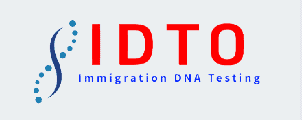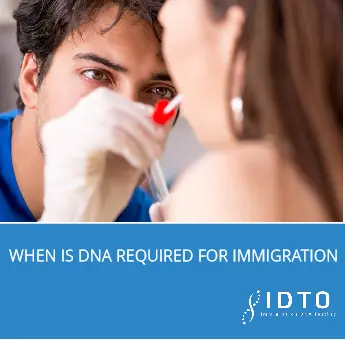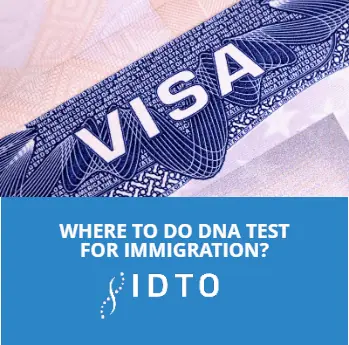When Is DNA Required For Immigration
Is DNA Testing a requirement for Immigration purposes?
No. Genetic testing is a voluntary option for immigration purposes to help establish a biological relationship between a petitioner and beneficiary when there is a lack of evidence to prove a claimed biological relationship.
Some of the common examples of DNA tests for immigration purposes are between child and a parent (paternity or maternity), or between siblings.
This normally occurs when the requesting immigration office USCIS or U.S. Embassy consular officer deems the primary evidence that your family submitted with your visa application or CRBA application to be insufficient. It should be noted that DNA testing is voluntary and does not guarantee acceptance.
What do I need to perform an Immigration DNA Test?
In order to perform a DNA test for immigration purposes that will be compliant with the requesting immigration office evidence submission guidelines.
First, the petitioner must have received an office action called a Request For Evidence (RFE) letter from USCIS or from a U.S. Embassy Consular Officer. Once you have this letter in your possession contact our office at 877-680-5800 to schedule an appointment or inquire how immigration DNA testing process works.
We do not recommend performing a DNA test before receiving an RFE letter. Doing so may require you to perform a second DNA genetic test. All requesting immigration offices require that you adhere to their guidelines, which include using an AABB accredited DNA testing laboratory to oversee the process.
Can Immigration ask for DNA test?
Yes, USCIS or a U.S. embassy may provide several options to a petitioner to prove a claimed biological relationship. DNA testing is a voluntary option that is not mandatory.
All genetic testing services we provide are performed by our partner AABB accredited laboratory. This specific accreditation is recognized by all immigration officers both domestic and international.
If you would like to learn more about DNA testing for immigration purposes. Contact out office at 877-680-5800 to get started.
Is DNA Testing required for CRBA?
No, DNA testing is not required for a Consular Report of Birth Abroad (CRBA). However, it may be requested by a U.S. Consular Officer if they require additional evidence to establish the biological relationship between the child and the U.S. citizen parent(s).
Genetic Testing is only suggested when other evidence is insufficient:
The consular officer will first review all the submitted documents and evidence before suggesting DNA testing. This evidence could include birth certificates, marriage certificates, medical records, etc.
Is DNA Testing required for a US visa?
DNA testing is not generally required for US visas, but it may be suggested in certain situations.
Situations where DNA testing might be suggested:
- Insufficient evidence of biological relationship: If you’re applying for a family-based immigrant visa based on a claimed biological relationship (e.g., parent-child, sibling), but the consular officer lacks sufficient documentary evidence to confirm the connection, they might suggest DNA testing as a way to verify it.
- Discrepancies or inconsistencies: If there are inconsistencies in your application documents or if the information doesn’t align with standard expectations, a consular officer may recommend DNA testing to clarify the situation.
What kind of DNA Testing samples are used for Immigration purposes?
The primary method used today to collect genetic samples for legal DNA testing cases for immigration is by buccal cheek swabs. Another method of acquiring DNA samples with a similar accuracy is DNA sample collection by blood.
If you require Immigration DNA Testing for the purpose of submitting secondary evidence, please do not hesitate to contact our office today at 877-680-5800 to schedule an appointment.”
How long after my DNA test will I receive an interview?
Before COVID-19, interviews after DNA tests typically took 60-90 days. Clients report that appointments are currently taking longer.
DNA testing companies do not work directly with USCIS or embassies, so they cannot provide information about your interview process.
For more information, please visit the USCIS website or contact your DNA testing company



